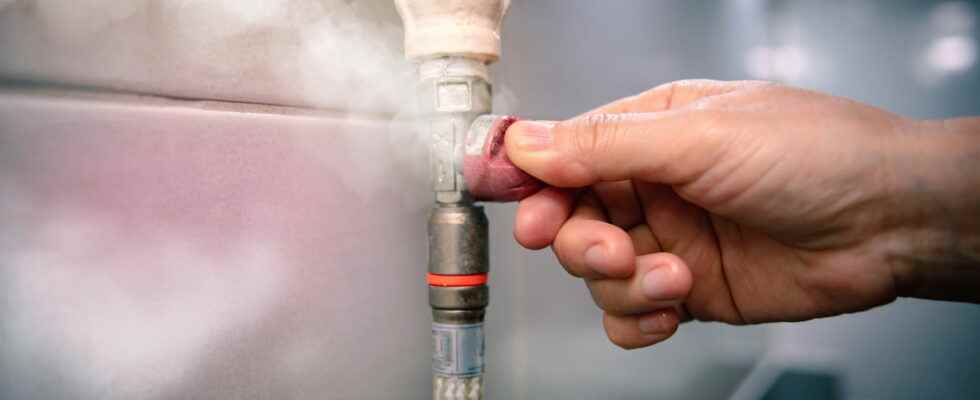Colourless, odorless, toxic and potentially fatal, carbon monoxide (CO) results from incomplete combustion, regardless of the fuel used: wood, butane, coal, gasoline, natural gas, propane… Every year, this gas toxic is responsible for a hundred deaths in France.
What is a gas leak?
It is first of all important to specify the vocabulary. “City gas, which is used for gas stoves for example, above all poses a risk of explosionsays Dr. Norbert Berginiat, firefighter. There is little chance of inhaling it because it smells very bad. If this odor is detected, call the fire department. who will set up a security perimeter with GDF”. In contrast, carbon monoxide (CO) poses risks of poisoning. “It results from a poor combustion, continues the doctor. It comes from gas-powered heating or cooking appliances, wood, coal, gasoline, fuel oil or ethanol. It is very often linked to a poor evacuation of combustion products (clogged flue), at a lack of maintenance heaters, or a inappropriate use certain devices designed exclusively for outdoor use (generators, etc.)“. In addition, mass poisonings are observed every year in public places : schools, supermarkets, restaurants, churches….
Why is it dangerous to breathe gas?
“Yes, he is dangerous breathing carbon monoxide (CO)“, recalls the firefighter. “He does not see himself and does not feel anything, but because it is a poisonous gas. And when we breathe it, it takes the place of oxygen in the blood, which is potentially deadly“.
What are the effects of a gas leak on the body?
“In the event of acute poisoning, CO will cause, depending on the duration and the concentration of monoxideheadaches, dizziness, nausea, heart problems, see coma and death, sometimes in just a few minutes“Children, pregnant women and the elderly are more rapidly affected.”In the case of chronic poisoning, i.e. when a person breathes in a little CO over a long period of time, he may experience frequent headaches and develop heart or neurological disorders“. Some cases of dementia have been observed.
What are the warning symptoms in the event of a gas leak?
“In case of inhalation of CO, the person will have headache, want to vomit, and will feel very tired. She may also pass out or even die“, describes the doctor.
Never block the air inlets
What to do in the event of a gas leak?
It is important to act very quickly. “If poisoning is suspected, ventilate the premises immediately, stop combustion appliances if possible, evacuate the premises and call the emergency services by dialing 15, 18 or 112“, insists our interlocutor. “Upon arriving on site, firefighters will be able to use a detector to check whether or not there is CO“. Firefighters will also be able to detect the concentration of CO in the blood of victims using a sensor. “In the event of a positive diagnosis, patients will be placed under a high concentration oxygen mask. Those most affected will be placed in a hyperbaric chamber in hospital“. In the dwellings, it is possible to install smoke detectors, carbon monoxide detectors, which will be triggered in its presence. Some advice:
► Have your facilities checked by a qualified professional:
► ventilate your accommodation
► Never block the air inlets.
► Follow the instructions for use combustion devices indicated in the instructions by the manufacturer.
► Never use appliances that are not intended for this purpose to heat you. : cooker, brazier, etc.
► Do not use space heaters continuously. These devices should only operate intermittently.
► In the event of power cuts, it is essential to install the generating sets outside buildings and never in closed places. They should never be used indoors.
Thank you to Dr. Norbert Berginiat, Head doctor of the Health and Medical Rescue Service of SDIS50 (Manche) and Vice-President of the National Federation of Firefighters of France.
